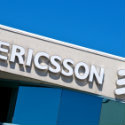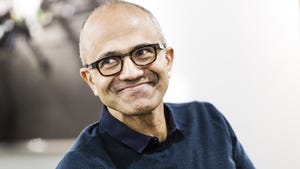
China's Huawei has started phasing Ericsson out of KPN's radio access network (RAN) in the Netherlands after securing a contract with the Dutch incumbent that had previously looked in doubt, Light Reading has learned.
KPN signed a preliminary RAN agreement with Huawei back in April, at the time indicating this could be "adjusted or reversed to align it with future Dutch government policy."
But work is now proceeding on the RAN overhaul, a Huawei spokesperson confirmed to Light Reading after Telecompaper first reported news of the Huawei-for-Ericsson swap without mentioning any sources.
That report, which says KPN has been using ageing 4G Ericsson products that are not "5G-ready," followed remarks about KPN's use of Huawei by Joost Farwerck, the operator's new CEO, during a recent earnings call. "We started the modernization of our mobile network, swapping equipment in The Hague area, and there we have installed the latest Huawei RAN equipment enabling the use of six to eight spectrum bands," he told analysts.
The deal is a rare recent coup for the Chinese network equipment vendor, which has been fighting a US campaign to have it blocked from Western 5G markets on security grounds. US officials say Huawei is a Chinese government stooge and that its products could include hidden features allowing China to spy on other countries or even bring down critical infrastructure.
Huawei has repeatedly denied those charges but a handful of countries, including Australia and New Zealand, have now imposed restrictions on it.
The Chinese company has also lost business to Sweden's Ericsson, its chief rival in the RAN market, including work for Denmark's TDC, Telia Norway and Telefónica Argentina.
Ericsson is understood to have bid aggressively for some of those contracts, promising to build a nationwide 5G network for Telia Norway by 2023 and phase out Huawei's 4G network in the process. CEO Börje Ekholm has signaled a willingness to accept less profitable contracts as he attempts to grow Ericsson's share of the RAN market.
The Huawei deal with KPN marks a setback for the Swedish supplier, which has provided 4G equipment under the terms of an older contract with the Dutch operator.
Ericsson insists that its latest RAN products are "5G-ready," meaning they can be software-upgraded to support 5G services, but KPN has been using equipment that was originally installed by Ericsson around six years ago, reports Telecompaper. Ericsson declined to comment when approached by Light Reading.
In switching suppliers with the move to new 5G technology, other service providers have been forced to rip out the old vendor's 4G equipment and introduce gear made by the new supplier to avoid interoperability problems. That issue has made switching vendors difficult.
"We are upgrading our network with future-proof technology and other areas will follow soon," said Farwerck on KPN's recent earnings call when discussing the overhaul. KPN is using advanced antenna systems and 10Gbit/s backhaul technology to boost performance. "The first results are very encouraging, with download speeds significantly increasing," said Farwerck. "We are confident that ongoing upgrades in the coming years will result in a further improved customer experience."
Want to know more about 5G? Check out our dedicated 5G content channel here on
Light Reading.
The decision to use Huawei suggests KPN received an assurance from Dutch authorities that Chinese vendors will not face restrictions in the RAN. KPN did not respond to a request for comment on the move.
However, it has ruled out the use of Huawei in its core, the intelligent part of the network that stores customer information and important IT systems. "KPN plans to select a Western vendor for the construction of the new mobile core network for 5G," it said in its April statement.
At the time, KPN said the core decision reflected a new "multivendor" policy, pointing out that its main fixed-line vendor is Finland's Nokia.
The disappearance of several equipment vendors in recent years and uncertainty about Huawei have convinced other operators to be less reliant on single-supplier deals. Some of the world's biggest service providers are now backing smaller software companies as an alternative to the big three of Ericsson, Huawei and Nokia.
Related posts:
— Iain Morris, International Editor, Light Reading
About the Author(s)
You May Also Like












